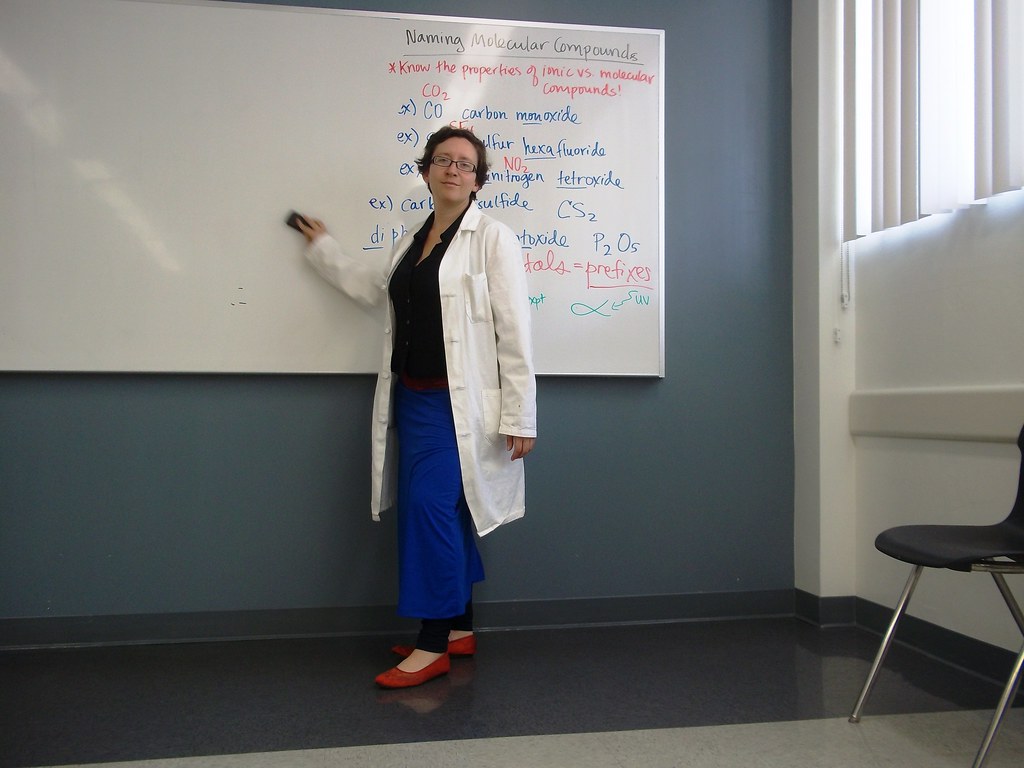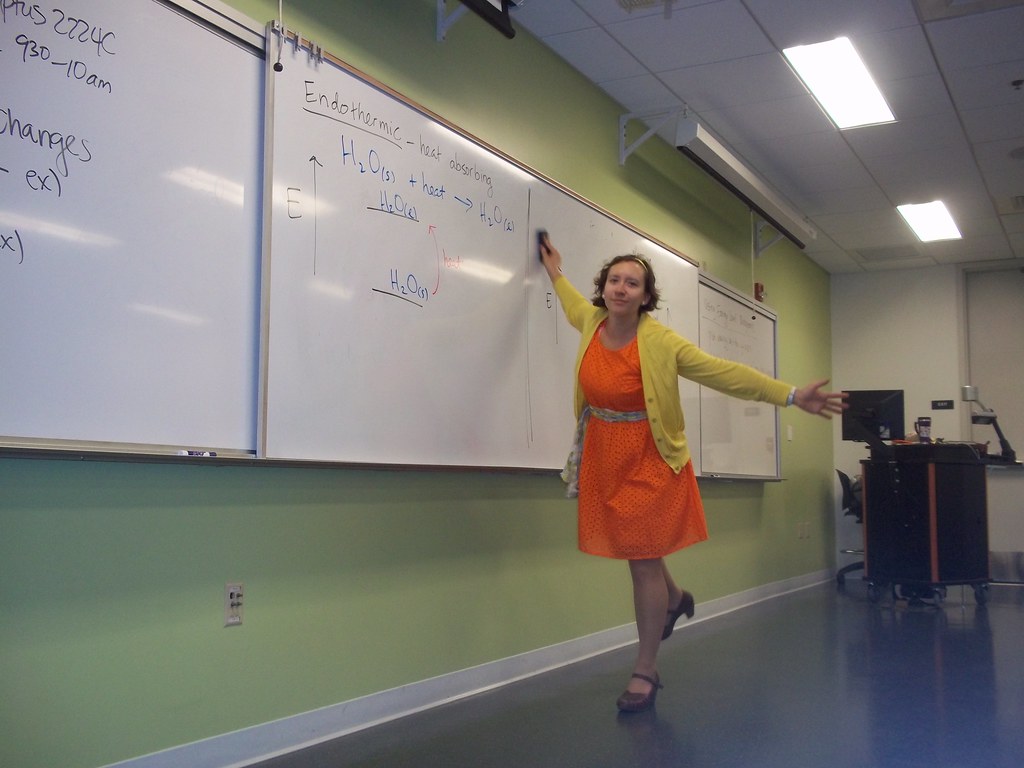

I must say that students' reliance on their mobile devices is making me uncomfortable. Until there is a 1:1 ratio between students:tablets (of equivalent capability) I don't think that these devices have a place in my classroom.
The true source of my apprehension is a frustration based on my direct observations that students are unwilling to do the same amount of work that I am doing. After all, they are the ones who are paying money to be in my classroom, so shouldn't they be willing to do the recommended work to achieve their goal (whatever that may be)?
What I mean, specifically, is that when I take the time and put forth the effort to write a problem on the board, I expect students to also write it down. My mantra has become "WRITE IT DOWN." But despite my chanting, ranting, and jumping up and down, throwing markers, and losing my temper with students who do it: students are still caught writing nothing down and taking a picture with their mobile device just at the moment when I have finished writing out the problem and circling the answer.
When I find myself at my wit's end, I have to do some research and writing (in true scholarly fashion) to see what others think about this issue. One article cited a study that found "excessive use of technology reduces people’s intelligence more than twice as much as heavy marijuana use." This is one of my worries. I think students are quick to turn to their devices (which are NOT allowed on the day of the exam) for answers, or to supplant traditional notetaking. How are they to solve problems without access to their device? How are they to recall a problem-solving process if they have not been engaged while we are going along? Paying attention to the last 0.5 seconds is not the same as writing down each step.
The same article cited a second study that suggested people are becoming "less likely to want to experience things that take long periods of time or that do not provide instant gratification." I also see this. When it takes me longer than 20 seconds to get an answer to a problem, I hear long sighs from the students in the class, as if they are thinking "How much longer is this wack-o teacher going to spend getting an answer to this problem?" I also see it during exams. When 55 minutes have passed, students are squiriming, flipping pages aggressively, and breathing heavily as if they have run out of patience for the work.
A book chapter about digital notebooks from 'Reinventing Writing: The 9 Tools That Are Changing Writing, Teaching, and Learning Forever' by Vicki Davis (2014) p. 48-49 lists the following concerns:
- Students don't have an organizing system of any kind to review, sort, or file notes.
- They run out of room on their phone or tablet and delete the notes because they don't know where they are.
- Students mix note pictures with personal pictures, which get deleted and lost.
- Students don't know whether they took the notes on their phone, tablet, or PC. There's no synchronization.
- Students replace electronics and forget to move notes.
- Paper notes don't combine with their electronic notes -- there's no system for merging them.
 |
| at the end of a lecture, I am exhausted |
I don't have all the answers, but my argument at the moment is based on equality. Until every student in my classroom has the equivalent tablet, I don't think it's fair for some people who have the technology to be able to take pictures of the board while others who don't have the technology are not able to do so. I also wonder if there will come a day in my teaching career when students are allowed to take an exam on their tablet with access to all the wonderful pictures they have captured. At least that would encourage students to organize all the information on their device.

No comments:
Post a Comment